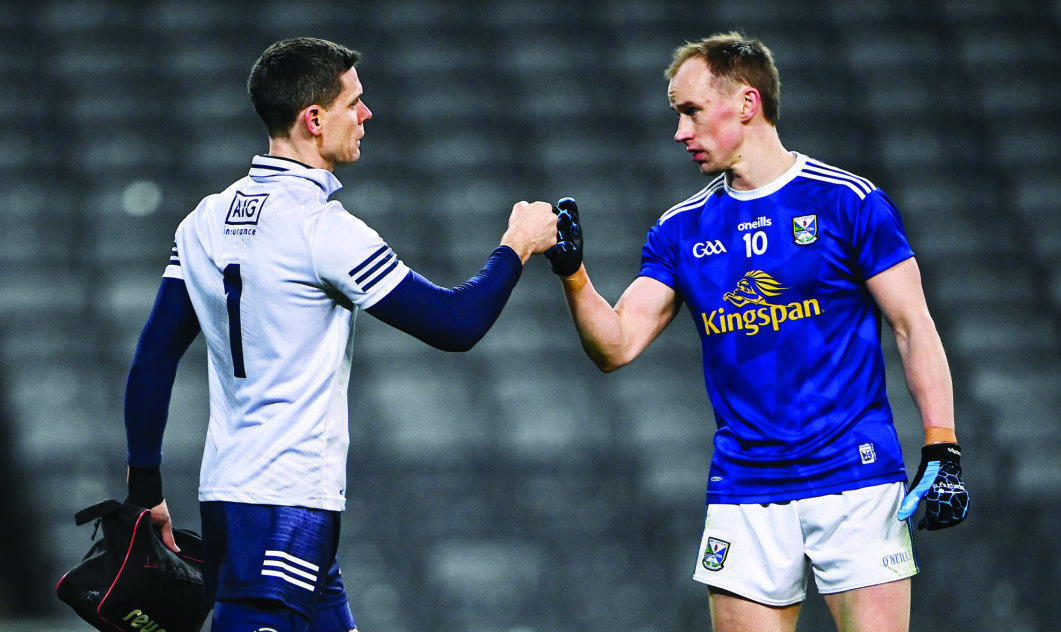WITH the majority of county competitions now entering the final stages of their season, now is the time when certain players will begin to think about what retirement would hold for any them – especially players who have been heavily involved in the game for a prolonged period of time.
Usually, the post-season is a time when goalkeepers take time to recuperate, reconnect with family and friends and make more time to enjoy themselves on a social basis. With more time available to complete any tasks or events previously placed on hold during the season, now in the closed season these become more of a priority.
But for some this time may also be a time used for reflection and a very in-depth look at their current status in terms of continuing to play. Whether it be for club or county, at this time there will be certain goalkeepers who will be fully assessing their willingness to continue playing for the next season(s).
I’m sure their final decision will not be taken lightly, and a variety of important factors will be taken into consideration before they do make up their mind. Some factors may include family situation, employment, school, injuries and/or enjoyment. Nevertheless, it is always important for the goalkeeper to think of any accommodations that could be made in order to prolong their playing career. Once these have been considered also it allows for a more informed decision and minimises the risk of having regrets for retirement.
Although any goalkeeper should always appreciate their playing time, from around the age of 32 onwards the focus on this really heightens as the goalkeeper may begin to harbour thoughts of hanging up their gloves. It is certainly possible to prolong your career as a goalkeeper beyond the normal ages associated with retirement by tailoring your training regimes to suit any family or working restrictions you may have. Around this age the goalkeeper will also begin to use their experience to compensate for reductions in physical ability.
When tailoring your daily training regime, the importance now transfers to the professionals you use to assist you with your training. Your coach, manager, S&C Coach and other coaches you use will now need to use their expertise alongside their reasoning to ensure that they accommodate you to ensure that they optimise your performance levels without overworking you towards burnout or injury.
You must now also realise that at this stage of your career more and more time must be spent on recovery protocols and making sure that the various types of recovery you complete are both effective and are complimentary to you tailored training regime. The more seasoned you become the more important that this area of your game becomes.
Appreciate every minute you get to spend on the field of play, no matter how frequent it may be and learn to savour every moment of the game from the build up to the post game no matter what your role may be.
Also remember that as a more senior member of the team you now take on a more leadership role within the team and especially for any young goalkeepers that are looking to you for example. You can do this by offering advice, opinion as well as being open for discussions with younger inexperienced team members which keeps a good team dynamic in place.
It is important the goalkeeper, now more than ever, listens to their own body and understands how it feels, ensuring to adapt recovery time to suit their body. The coach and the goalkeeper will draw up a coaching plan that embraces the physical limitations of the goalkeeper as well as discuss the best ways to return from injuries correctly so as to reduce setbacks or complications.
Ultimately, it is the goalkeeper’s decision when they would like to retire from the game, and it is definitely not an easy decision to make. For this reason, it is very important that the retiring goalkeeper gives thought to preparing for their coming retirement and more specifically design a retraining plan or life plan for what they intend to do after retirement. After retirement there will always be a great void left in the goalkeeper’s life and it is very important for the goalkeeper to have planned accordingly for this, which will ensure they have a positive physical, psychological and spiritual conclusion to their playing career.
But remember only you can answer the question, Is It Time?
Email: pmgoalkeeping@hotmail.com
Facebook: @MSoG11
Twitter: @MorSchGk
Receive quality journalism wherever you are, on any device. Keep up to date from the comfort of your own home with a digital subscription.
Any time | Any place | Anywhere












